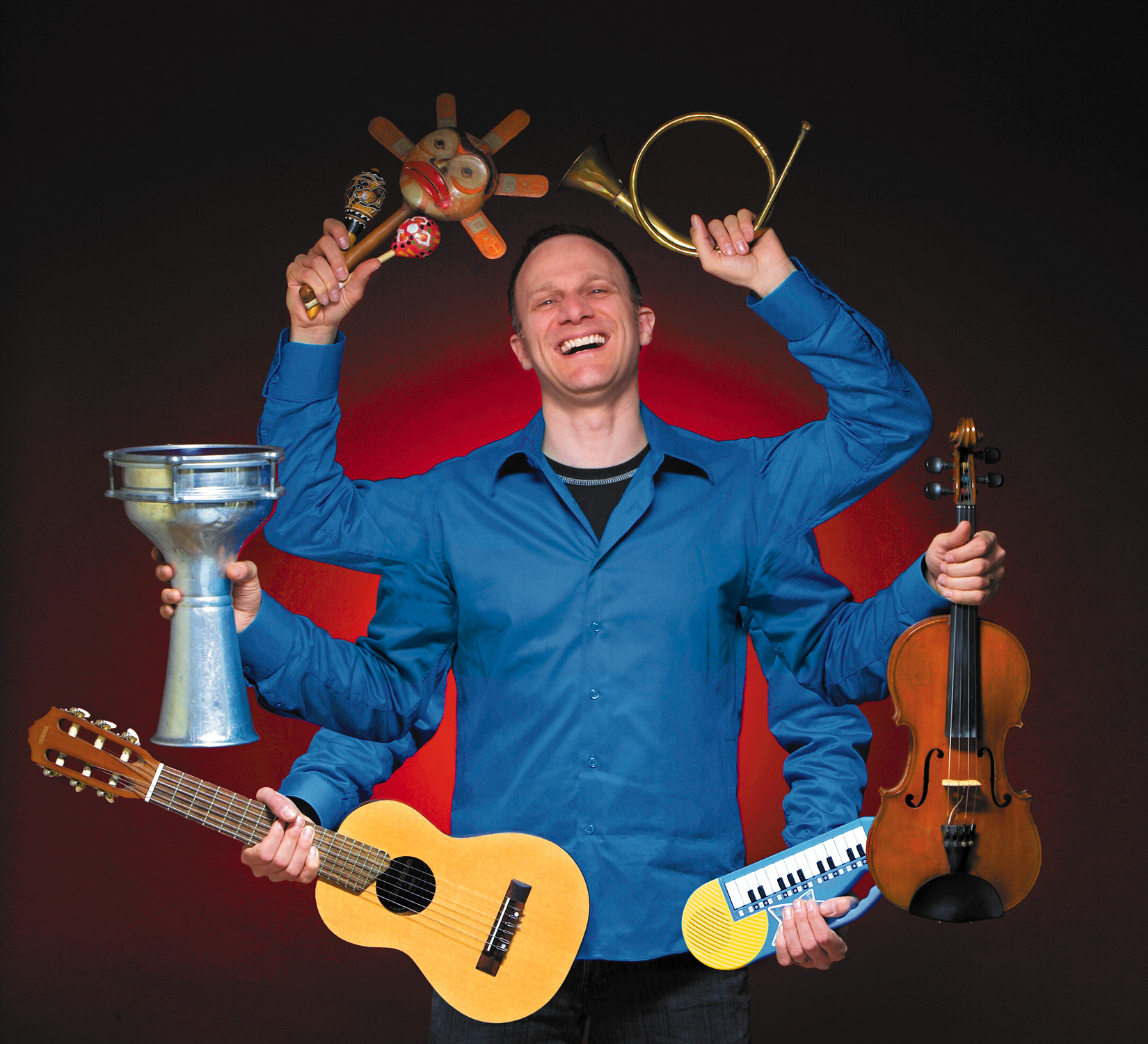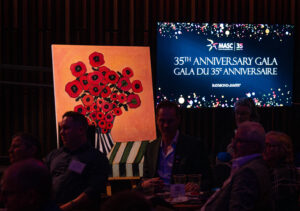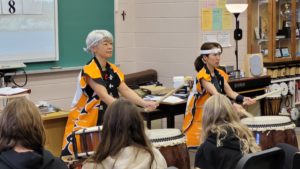Interview: JUNO nominee and Canadian Folk Music Award winner Chris McKhool
By Jessica Ruano | January 4, 2022

This interview was originally published on Apt613.ca
JUNO Nominee and Canadian Folk Music Award Winner Chris McKhool is hailed as “Canada’s greatest eco-troubadour for young people.” He has been delighting audiences with infectious songs and world instruments for two decades, reaching one million children live in concert! He also plays violin in the Billboard-charting world music band Sultans of String. In this interview, Chris talks about launching a new album in the midst of a pandemic and connecting with children of all ages through joyful music and positive messaging.
MASC: Your award-winning band Sultans of String was just about to launch their latest album Refuge in March 2020 when COVID-19 hit. What can you tell us about this album spotlighting refugees and new immigrants?
Chris McKhool: Refuge is the most important album we have ever recorded, collaborating with over 30 musicians on a wide-ranging treatise on displaced peoples. Refuge aims to amplify the voices of struggling peoples and the humanitarian response that should greet everyone in search of a home. We made it part of our mission with this band to use our work to amplify the voices of Black, Indigenous, and People of Colour. We stand in solidarity with the Black Lives Matter movement, and also hope that Indigenous issues around the country will benefit from a new awareness from those in power during this important moment in history.

Chris McKhool performs live. Photo provided by MASC.
MASC: How have you managed to get this album the attention it deserves in the midst of a global pandemic?
CM: The news cycle is so saturated right now with critical stories that it is tough to try to break through to mainstream media with a world music release. Music fans cannot attend a live show in person or walk into a store to buy a CD. But all eyes are on the internet right now, so we have put a lot of our energy into creating really cool captivating videos that try to tell the stories of our guests.
We have tons of footage of the recording process of Refuge from Jukasa Studio, a world class Indigenous-owned studio on the Six Nations reserve south of Hamilton. It is a cool place that gives back to the local community through music education programs, creating a new generation of engineers.
We have experimented with a couple of watch parties on Facebook and uploading to YouTube to share these videos as they come online, and now we are doing virtual talks and performances, including with Luminato Festival.

Sultans of String. Photo: Kevin Kelly.
MASC: Your songs for children have appeared on Mr. Dressup, YTV’s Treehouse, TVOntario, and CBC, and you often include positive messaging about caring for the environment, cultural diversity, and togetherness. What do you think your audiences – young and older – love so much about your music?
CM: Songs often tell stories, and I think people have a hunger to learn about other people’s lived experiences. A typical audience has such a deep collective well of experience and we can learn from each other through our music. My songs are written from very honest places and I think sometimes they can help reconnect people’s minds to their hearts.
Also I think the audience participation in my concerts is something that people of all ages really enjoy. Being able to be a part of the show, whether it be live or online, actually makes one feel like they are part of a community of people enjoying, learning, and growing together. The interesting thing about online concerts through portals like Zoom and Meet is that everyone can see everyone else watching and participating in the show, and it really drives the energy for the artist as we feed off each other.
MASC: As a member of MASC, what do you gain through offering your workshops in schools and in the community?
CM: I really love sharing my passion for music, and social and environmental justice with young people. They are natural learners, and I have a ton of fun when they sing and play along. At the same time, audiences teach me so much about the world while they share their ideas and love of the natural world and the people around them.
I love working with MASC in particular because they are a fantastic team of people who are sincerely dedicated to bringing the arts experience to young people. They are super helpful and accommodating, and really progressive, as you can see in their willingness to take chances on new digital initiatives to ensure children still receive an arts experience during this pandemic.

Chris McKhool plays fiddle. Photo provided by MASC.
MASC: You’ve participated in the National Arts Centre’s #CanadaPerforms and Toronto’s City Hall Live Facebook concert series alongside your wife and daughter. Now you’re available for bookings through MASC’s online programming. How’s it been going virtual with your performances?
CM: I really love it! I never imagined I would be doing online concerts, but we must all adapt at this time. What is most exciting as a performer is that, even though I cannot be in the same room as my audience, I can now pull in a global audience and have people watching my concerts from literally around the globe. You can perform a show in Ottawa in the morning, a show in Australia in the afternoon, and a show in Japan in the evening. That is pretty amazing!
And now I have also been doing solo education and community concerts online, where we can have the entire school body or festival with us for a show. I am helping a few festivals and schools with their year-end celebrations through platforms like Zoom, Facebook Live, YouTube Live, and Google Meets. I didn’t really know what it would feel like to do a concert this way, but actually they can be very interactive, with the students chatting and asking questions.
That being said, I cannot wait to be able to play for an in-person audience again and see those young smiling faces!
Latest News
View All Articles



